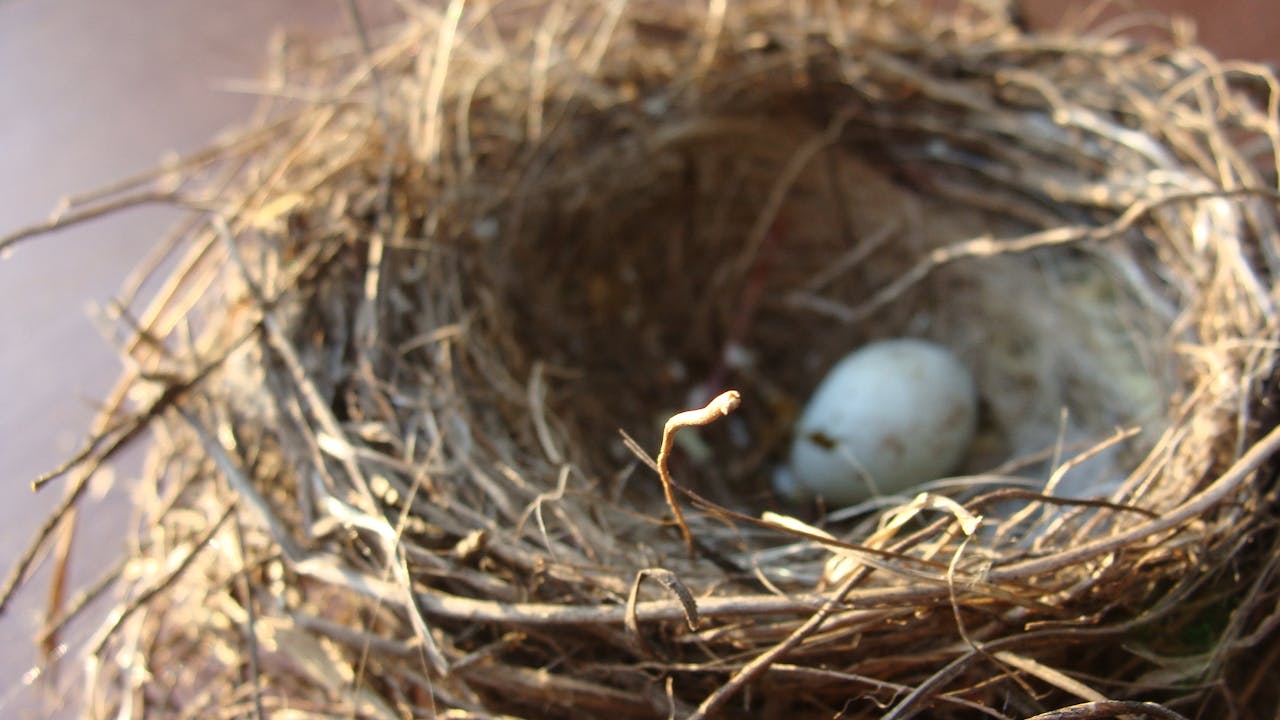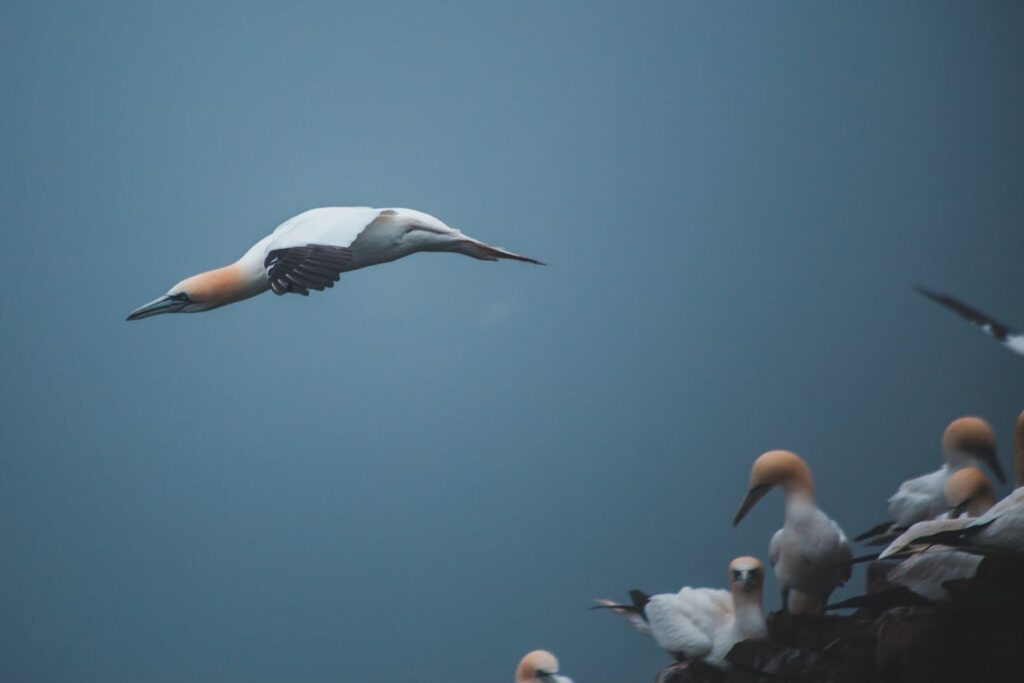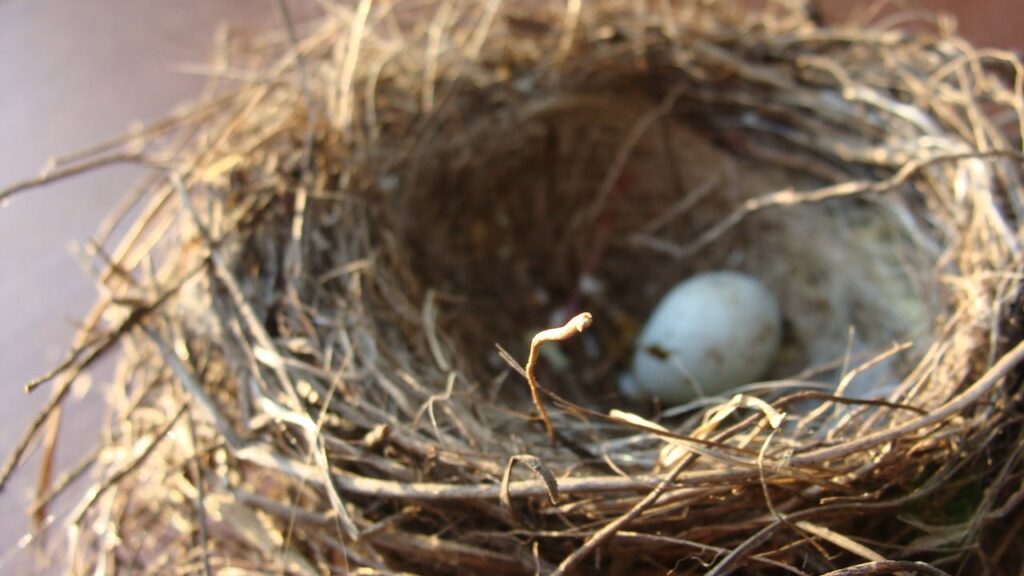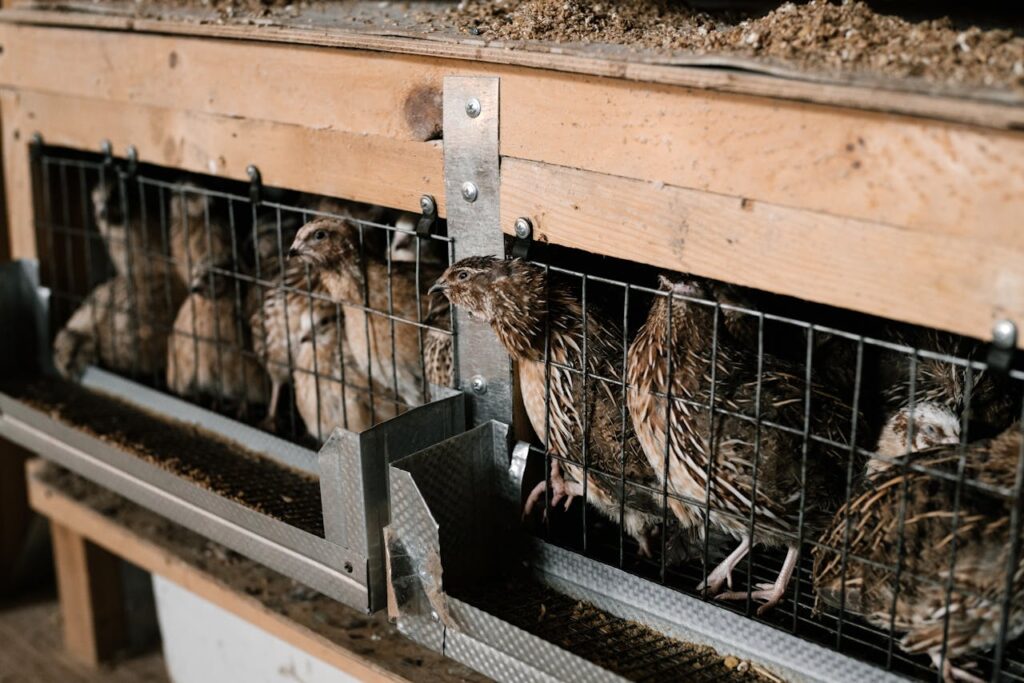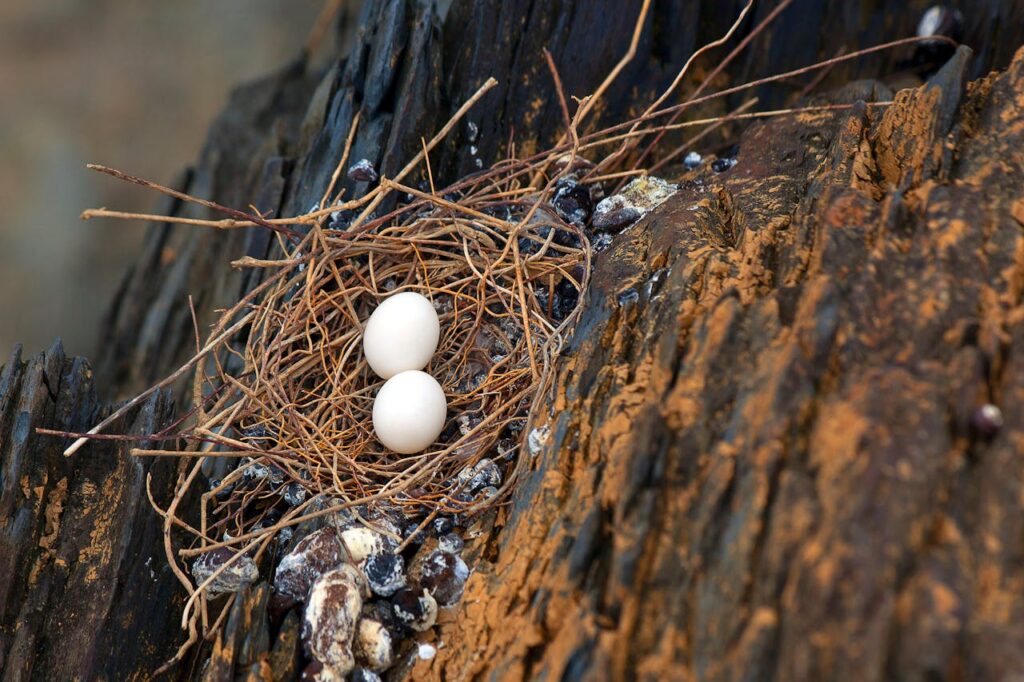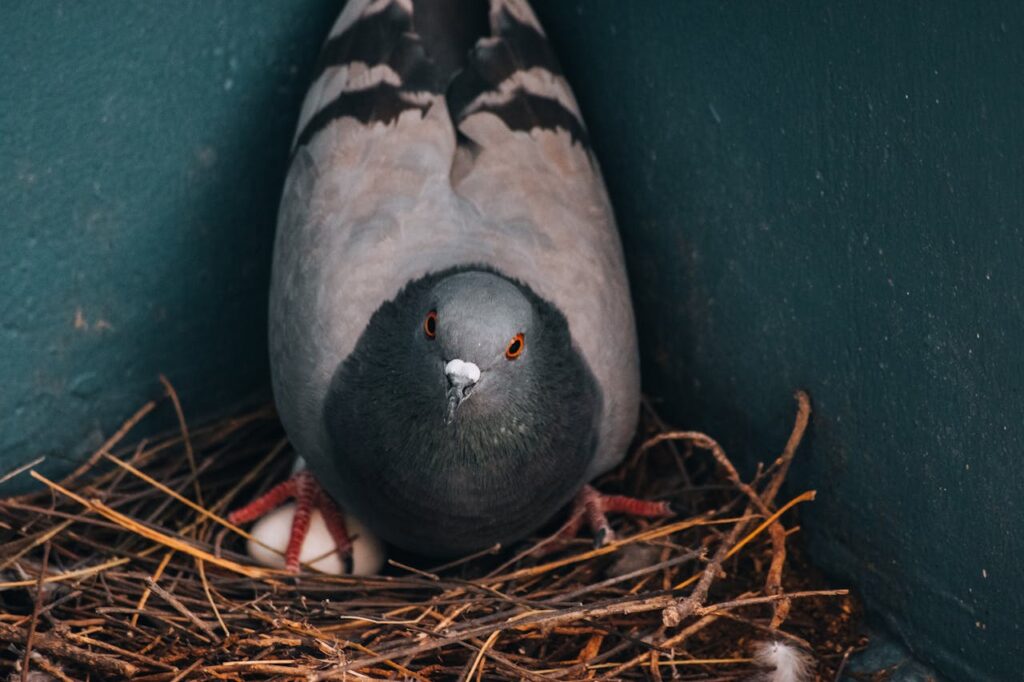Welcome to our article on the fascinating world of bird egg incubation! Have you ever wondered how long it takes for bird eggs to hatch? In this comprehensive guide, we will explore the various factors that affect incubation time, delve into the mechanics of the incubation process, and highlight some remarkable examples of rapid and extended incubation periods in different bird species.
A delicate and complex process is set in motion from the moment a bird lays its eggs. The long time it takes for these eggs to hatch can vary greatly depending on several factors, including species-specific differences, environmental conditions, parental care, and clutch size.
Join us as we journey through the avian world, uncovering the secrets of incubation and discovering how birds maintain the optimal conditions for egg development. We will also discuss the critical role of parental care during this crucial period and explore challenging scenarios that birds may encounter.
So, if you’ve ever wondered how long bird eggs take to hatch and what influences this process, keep reading! By the end of this article, you’ll gain a deeper appreciation for the incredible diversity and complexity of bird egg incubation.
Factors Affecting Incubation Time
Several factors come into play when it comes to the length of time it takes for bird eggs to hatch. Understanding these factors can provide insights into the fascinating world of avian incubation. Let’s explore some of the main influences on incubation time.
Species-Specific Differences
One significant factor that affects incubation time is the species of the bird. Different bird species have varying developmental processes, resulting in variations in the incubation duration. Some species may hatch their eggs within days, while others may take weeks or months.
Environmental Conditions
The environment in which the eggs are incubated can also impact the hatching time. Temperature and humidity levels play crucial roles in egg development. Birds adapt their incubation behavior to regulate these conditions, ensuring optimal growth. External factors, such as climate and seasonal changes, can further influence the incubation duration.
Role of Parental Care
Parental care is another key factor in the incubation process. Both male and female birds contribute to the incubation of their eggs. They take turns sitting on the nest, providing warmth and protection. The level of attentiveness and dedication shown by the parents can influence the time it takes for the eggs to hatch.
By understanding these factors, we can gain a deeper appreciation for the complexities of avian incubation and the incredible diversity in the timing of bird egg hatching.
Average Incubation Times by Bird Species
When it comes to the miracle of bird egg incubation, the time it takes for an egg to hatch can vary significantly from species to species. From the moment a bird lays its eggs, a fascinating process begins, with each species having its unique incubation period.
So, how long does it take for bird eggs to hatch? Let’s explore the average incubation times for different bird species, spotlighting a few examples.
1. American Robin
The American Robin, known for its vibrant orange breast and melodious song, tends to have an average incubation period of about 12-14 days. These birds are skilled nest builders, and their dedicated incubation ensures the successful hatching of their eggs.
2. Bald Eagle
The majestic Bald Eagle, a symbol of freedom and strength, has an incubation period of 34 to 36 days. These large birds build massive nests and take turns incubating their eggs, demonstrating exemplary parental care.
3. Ruby-throated Hummingbird
Known for their iridescent feathers and incredible agility, Ruby-throated Hummingbirds are tiny wonders of nature. Their eggs typically hatch in 14-17 days, an impressively short incubation time compared to many other avian species.
These examples represent just a fraction of the vast bird species with varying incubation times. From the efficient little Brown Pelican with an average incubation period of 26-30 days to the patient Emperor Penguin, whose eggs will incubate for a remarkable 64-67 days, the bird incubation holds endless marvels.
Join us in the upcoming sections as we delve deeper into the mechanics of the incubation process, explore the factors affecting incubation time, and unravel the fascinating world of avian reproduction.
Avian Reproduction: The Incubation Process
During the crucial incubation period, birds meticulously maintain the ideal conditions for developing their precious eggs. This intricate process involves carefully orchestrating various factors to ensure successful hatching and the future survival of their young.
Maintaining Optimal Conditions:
Temperature and humidity play vital roles in the incubation process. By effectively adjusting their body temperature or utilizing nest materials, birds can create the necessary warmth for their eggs. Precise humidity regulation prevents the delicate eggs from becoming too dry or excessively moist, safeguarding their integrity.
The Roles of Male and Female Birds:
The responsibility for incubating the eggs is not limited to one gender; male and female birds of different species share it. In some cases, males alone undertake the incubation duty, providing protection and warmth while the females forage for food. In other species, the female takes on the primary incubation role, occasionally relieved by the male for short periods. The division of labor allows each parent to fulfill their essential tasks, contributing to the overall success of the incubation process.
Parental Shifts and Cooperation:
Parental shifts during incubation occur regularly, ensuring that the eggs receive continuous care without jeopardizing the parents’ ability to nourish themselves. These coordinated shifts maintain a consistent temperature and humidity level, providing optimal conditions for the developing embryos. The seamless cooperation between male and female birds exemplifies their dedication to the development and well-being of their offspring.
Protection and Defense:
During incubation, birds adopt various strategies to protect their eggs from predators and disturbances. Some species possess excellent camouflage, blending seamlessly with their surroundings to avoid detection. Others assertively defend their nests, using vocalizations, displays, or physical attacks to deter would-be threats. These protective measures, combined with the parents’ unwavering commitment, contribute to safeguarding the crucial incubation process.
In summary, the fascinating world of avian reproduction involves a meticulous incubation process where birds skillfully maintain the ideal conditions for their eggs to hatch. Through careful temperature and humidity regulation and the dedicated efforts of both male and female birds, the incubation process ensures the successful development of their offspring.
Shortest Incubation Periods
Regarding the fascinating world of bird egg incubation, some species are known for their remarkably short incubation periods. These avian parents have perfected the art of efficient development, ensuring their offspring are ready to hatch in record time.
The Common Pigeon (Columba livia)
The Common Pigeon, also known as the Rock Pigeon, is one such species with a short incubation period. These adaptable birds can be found in urban environments worldwide, and their eggs typically hatch in just 17 to 19 days.
The American Robin (Turdus migratorius)
Another notable example is the American Robin. These familiar backyard birds build their nests in trees and shrubs, and their eggs incubate for approximately 12 to 14 days, one of the shortest incubation periods among songbirds.
Maintaining the perfect balance of temperature and humidity within the nest is crucial for these bird species with short incubation periods. The parents work diligently to ensure the eggs receive the optimal conditions for swift and successful development.
Additionally, the metabolic rate of the embryos plays a role in the accelerated incubation process. The embryos of birds with shorter incubation periods often reach higher metabolic rates, allowing them to grow and develop more rapidly.
Overall, the ability of certain bird species to hatch their eggs quickly is a testament to their remarkable adaptation and efficiency in the realm of avian reproduction. By minimizing the incubation time, these birds can increase the chances of their offspring surviving and thriving in a competitive world.
Longest Incubation Periods
This section will look closely at bird species with the longest incubation periods. It’s fascinating to explore the factors that contribute to these extended durations and observe the unique strategies that birds employ to ensure the successful hatching of their eggs.
One such example is the Albatross, known for its lengthy incubation period. These magnificent seabirds can take up to 70 days to hatch their eggs. The albatross species invests significant time and energy into incubation, often alternating shifts between both parents to protect and nurture their eggs.
Another notable species with an extended incubation period is the ostrich. Ostrich eggs are the largest bird species, and it can take 40 to 45 days for them to hatch. The male and female ostriches share the responsibility of incubation, taking turns to ensure the eggs are well-cared for and protected.
The kiwi, a flightless bird endemic to New Zealand, also has a remarkably long incubation period. Kiwi eggs can take 70 to 90 days to hatch. These unique birds have a slow metabolic rate and low body temperature, contributing to the extended incubation period.
Other bird species with long incubation periods include the swan, emu, and penguin. Each of these species has its own environmental and physiological factors that influence the duration of their incubation periods, ensuring their eggs’ successful development and hatching.
Environmental Influences on Incubation Time
When it comes to the incubation of bird eggs, environmental conditions play a crucial role in determining how long it takes for the eggs to hatch. Factors such as temperature, humidity, and predation risk can significantly impact the length of the incubation period.
Temperature:
Temperature is one of the most influential environmental factors affecting incubation time. Different bird species have specific temperature requirements for optimal egg development. Generally, higher temperatures can accelerate the incubation process, leading to shorter hatching times, while lower temperatures can lengthen the incubation period.
Humidity:
Humidity levels also play a role in incubation time. Proper moisture levels are essential for maintaining the integrity of the eggshell and facilitating gas exchange. Inadequate humidity can lead to dehydration or suffocation of the developing embryos, potentially prolonging the incubation period.
Predation Risk:
Another environmental factor that can influence incubation time is predation risk. Birds often adjust their incubation behavior in response to perceived threats. Increased predation risks may result in more frequent or longer incubation breaks, extending the overall incubation period to ensure the safety of the eggs.
Overall, it is fascinating to observe how environmental conditions can directly impact the incubation time of bird eggs. By understanding these influences, researchers and bird enthusiasts can gain further insights into birds’ adaptive strategies to ensure successful hatching.
Clutch Size and Incubation Time
In the fascinating world of bird egg incubation, the number of eggs in a nest, also known as the clutch size, can impact the incubation duration. The more eggs a bird has to incubate, the longer it may take them to hatch.
When a bird is incubating a larger clutch, it must allocate more time and energy to warming and caring for each egg. This extended incubation period ensures that each egg receives the necessary heat and attention for proper development.
On the other hand, birds with smaller clutches may experience shorter incubation times. With fewer eggs to incubate, these birds can devote more attention to each egg, resulting in a potentially faster development and hatching process.
It’s important to note that clutch size and incubation time can vary significantly between bird species. Different bird families and species have evolved unique incubation strategies that suit their specific reproductive needs. Some birds may have small clutches with a shorter incubation time, while others may have larger clutches that require a longer incubation period.
Understanding the relationship between clutch size and incubation time provides valuable insights into the fascinating world of avian reproduction. By studying these dynamics, researchers can better understand the various factors that influence the timing and success of egg hatching.
Parental Care and Incubation
During the incubation period, parental care is crucial in ensuring the successful hatching of bird eggs. Both male and female birds contribute to the incubation process, with each parent having specific responsibilities.
Female birds are primarily responsible for incubating the eggs, carefully maintaining the optimal conditions for embryonic development. They use their body heat to warm the eggs, ensuring a consistent temperature that is essential for the growth of the embryos. The mother bird carefully positions herself on the nest, using her feathers and body shape to create a snug and protective environment for the eggs.
Meanwhile, male birds also contribute to parental care during incubation. In some species, the male and female birds take turns incubating the eggs. This shared duty allows both parents to feed and rest adequately, ensuring the eggs receive continuous care and attention. In other cases, the male bird provides resources for the female, such as food and protection, while she remains in the nest.
In addition to maintaining the proper temperature, parent birds protect the eggs from threats. They diligently guard the nest, warding off predators and intruders, ensuring the safety and security of their unhatched offspring.
The actions and dedication of both parents significantly impact hatching success. The level of attentiveness, the ability to maintain temperature, and the tireless defense of the nest contribute to the healthy development of the eggs and the eventual emergence of the chicks.
By actively engaging in parental care during incubation, bird parents foster the next generation, instilling survival skills and providing the conditions for their offspring to thrive.
Challenging Incubation Scenarios
During the incubation period, birds may encounter various challenging scenarios that can impact the hatching times of their eggs. These scenarios include interruptions, disturbances, and parasite infestations.
Interruptions:
Interruptions in the incubation process can occur due to several reasons. For instance, if a nesting bird is forced to leave the nest for extended periods, the eggs may be exposed to suboptimal conditions, which can affect their development and delay hatching.
Additionally, suppose a parent bird is injured or killed. In that case, their partner may be unable to provide adequate care, leading to delays in the incubation process and potentially affecting the viability of the eggs.
Disturbances:
Disturbances near the nest can stress incubating birds, causing them to leave the eggs unattended temporarily. This interruption in constant warmth can slow down the development of the embryos, resulting in longer incubation times.
Human activities, such as habitat destruction, recreational activities near nesting sites, or photography, can disturb birds and disrupt their incubation routines, potentially leading to delays in hatching.
Parasite Infestations:
Parasitic infestations can pose significant challenges during incubation. Certain bird species are susceptible to parasites, such as mites or lice, which can cause discomfort to the incubating adults.
The presence of parasites may increase preening and grooming behaviors, diverting the birds’ attention from incubating the eggs. This diversion of attention can prolong the incubation period and influence hatching times.
In conclusion, challenging incubation scenarios, including interruptions, disturbances, and parasite infestations, can considerably impact the hatching times of bird eggs. These challenges highlight the delicate balance that birds must maintain to ensure their offspring’s successful development and hatching.
Conclusion
After exploring the fascinating world of bird egg incubation, we have gained insights into the factors that affect the time it takes for these delicate structures to hatch. From species-specific differences to environmental influences, the incubation duration varies greatly among bird species.
The average incubation times by bird species range from a few days to several weeks, highlighting the remarkable diversity in reproductive strategies within the avian world. Factors such as temperature, humidity, and parental care play crucial roles in creating an optimal environment for embryo development.
While some bird species exhibit remarkably short incubation periods, others engage in extended incubation to ensure the successful hatching of their eggs. The clutch size, or the number of eggs in a nest, can also influence the incubation duration, as birds must allocate their resources accordingly.
Throughout our exploration, we have witnessed the undeniable dedication and adaptability of avian parents in their critical role of incubation. From protecting their eggs against interruptions and disturbances to combating parasites, they continually strive to ensure the survival of their offspring. The intricate world of bird egg incubation captivates us with its complexities and showcases the astounding diversity found in nature.
FAQ
How long does it take for bird eggs to hatch?
The time it takes for bird eggs to hatch can vary depending on the species, environmental conditions, and parental care. Generally, the incubation period can range from a few days to several weeks.
What factors can affect the incubation time of bird eggs?
Several factors can influence the time it takes for bird eggs to hatch. These include species-specific differences, environmental conditions such as temperature and humidity, and the level of parental care the birds provide.
Can you provide examples of average incubation times for different bird species?
While the exact incubation times can vary, here are some examples of average durations for different bird species: House Sparrow (12-14 days), American Robin (12-14 days), Mallard (25-28 days), and Bald Eagle (35-40 days).
How do birds maintain the optimal conditions for egg development during incubation?
Both male and female birds play important roles in ensuring the optimal conditions for egg development during incubation. They regulate the temperature and humidity inside the nest, often by sitting on the eggs to provide warmth and controlling airflow to maintain the right moisture levels.
Are there any bird species with particularly short incubation periods?
Yes, some bird species have remarkably short incubation periods. For example, the Killdeer’s eggs hatch in around 24-28 days, while the Chicken’s eggs hatch in just 21 days. These species have adapted to rapid development to increase the chances of their young surviving in their respective environments.
Are there any bird species with longer incubation periods?
Yes, some bird species have longer incubation periods compared to others. For instance, the Albatross can take between 65 to 85 days for their eggs to hatch. The extended incubation time allows the offspring to develop to a more advanced stage before hatching.
How do environmental conditions influence the incubation time of bird eggs?
Environmental conditions such as temperature, humidity, and predation risk can significantly impact the time required for bird eggs to hatch. Extreme temperatures or weather changes can slow or accelerate the incubation process.
Does clutch size affect the incubation time of bird eggs?
Yes, clutch size, which refers to the number of eggs in a nest, can influence the incubation duration. Generally, larger clutches may require more time to hatch than smaller clutches, as the parent birds need to divide their attention and warmth among more eggs.
How does parental care affect the incubation process?
Parental care is vital during incubation, as both male and female birds take turns to incubate the eggs and provide necessary warmth and protection. The actions and dedication of the parents can impact hatching success, as they need to ensure the eggs are adequately cared for and protected from potential threats.
Can challenging incubation scenarios affect the hatching time of bird eggs?
Yes, challenging incubation scenarios, such as interruptions, disturbances, or parasite infestations, can impact the hatching time of bird eggs. These situations can disrupt the incubation process, requiring additional time and effort from the parent birds to ensure successful hatching.
Conclusion
In conclusion, the time it takes for bird eggs to hatch varies depending on various factors, including species, environmental conditions, and parental care. Understanding these factors can provide insights into the incredible and diverse world of avian egg incubation.
